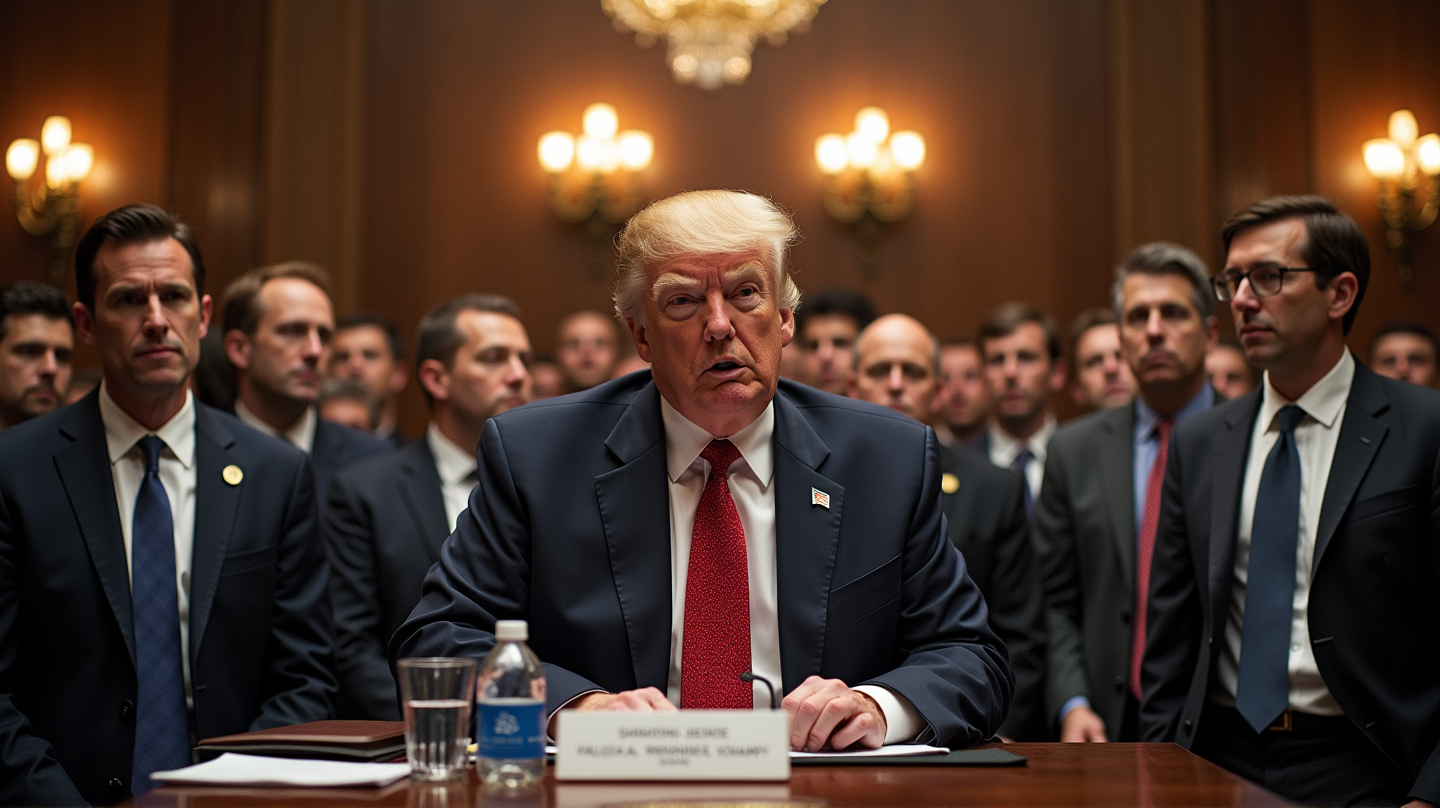Senate Struggles with Trump's $3.3 Trillion Bill Amid Vote-a-Rama Drama
U.S. Senate Republicans race against time to pass Trump's $3.3 trillion tax bill amid deepening party divisions and pressure from international and domestic critics.

In a high-stakes race against time, U.S. Senate Republicans are locked in a fervent battle to pass President Donald Trump’s sweeping $3.3 trillion tax-cut and spending bill. The contentious legislative endeavor is facing internal divisions, marathon voting processes, and significant opposition from Democrats.
The Marathon Madness: What is Vote-a-Rama?
The term “vote-a-rama” might sound playful, but for U.S. Senators, it means long hours of relentless voting on a series of amendments. This intricate process was set in motion as a strategic move to circumvent regular Senate rules, which require a 60-member consensus for legislation.
Why the Rush?
As with any pressing legislative agenda, timing is crucial. Trump has set his sights on getting the bill passed before the July 4th Independence Day holiday. The Senate narrowly advanced the tax-cut bill in a procedural vote on Saturday, but further progress was uncertain by late Monday evening.
Financial Concerns: Debt and Deficit Debate
The bill proposes a \(5 trillion debt ceiling increase, sparking fierce debates about fiscal responsibility. According to the Congressional Budget Office's findings, the Senate version could add \)3.3 trillion to the national debt. This has fueled anxiety among conservative lawmakers and international bond markets, both wary of an escalating U.S. debt crisis.
Discord Among Republicans
Tensions within the Republican party have come to light, as key figures such as Senator Rand Paul and Senator Thom Tillis voice their opposition, primarily over cuts to Medicaid and deficits in clean energy funding.
The Democrats’ Stand
Meanwhile, Democrats have united in opposing the bill. Senate Minority Leader Chuck Schumer has pointed to potential negative repercussions such as reduced health care access and diminished consumer protection, emphasizing the bill’s tilt toward benefiting wealthy individuals.
Outside Influences: Political and Public Reactions
Elon Musk, once an ally of Trump’s administration, has voiced strong criticism against the bill, threatening political retribution come the 2026 mid-term elections. Similarly, organizations like the Small Business Majority express concerns that the tax reliefs disproportionately favor the wealthiest segments, leaving the majority of small businesses underserved.
A Looming Deadline
As the debate intensifies, Senate Republicans face an urgent need to reconcile differences and pass the bill. The looming deadline for increasing the debt ceiling adds another layer of pressure to an already tense situation.
What’s Next? The Road Ahead
Should the Senate push the bill through, it will move to the House of Representatives, where more hurdles await. The division among members over its fiscal implications and the proposed Medicaid cuts could spell further delays. As stated in The Economic Times, the outcome remains uncertain, but the implications will surely shape the U.S. economic landscape for years to come.





